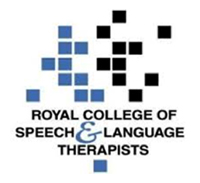Professional Body For Speech Therapy Launches New Campaign During Dementia Awareness Week
 The Royal College of Speech and Language Therapists (RCSLT) has launched a campaign to raise awareness of the communication and eating, drinking and swallowing needs of people with dementia.
The Royal College of Speech and Language Therapists (RCSLT) has launched a campaign to raise awareness of the communication and eating, drinking and swallowing needs of people with dementia.
The (RCSLT) campaign, Giving Voice for People with Dementia, comes as the number of people with dementia worldwide is set to soar from 44 million to 76 million by 2030. There are currently more than 800,000 people in the UK with dementia and this will rise to one million by 2021. The challenges to our health and social care services are immense and speech and language therapists have a vital part to play in the care of people with dementia.
Communication problems are particularly challenging in the later stages of dementia. This is one of the most distressing experiences of dementia for family carers. Speech and language therapists work with individuals and family carers throughout the course of dementia to identify communication difficulties and needs, helping them to maintain their interpersonal relationships.
They are also able to assess an individual’s ability to understand and to communicate that understanding to improve their choice, degree of control and ability to consent to treatment and care.
Kamini Gadhok, RCSLT chief executive, says:
“Dementia is one of the biggest health challenges facing the world today and the RCSLT has made it our top priority for 2014 and beyond. Too few people understand the role speech and language therapists have in helping individuals with dementia with communication, eating, drinking and swallowing difficulties, and the support they can provide to carers.
“We aim to raise awareness of our role in dementia. Our task is to demonstrate to fellow health professionals, politicians and – most importantly – decision makers and budget holders that we have a vital place in supporting the care of people with dementia, so that our services are properly funded and used appropriately.”
Sasha Wade, service lead for dementia at Kingston hospital NHS Foundation Trust adds:
“Just because someone comes into hospital with dementia, it does not mean they should have poorer outcomes than those without impaired thinking. One of the reasons people with dementia have poorer outcomes is because healthcare staff are not trained with the appropriate communication skills to interact effectively with them.
“Staff must be the communication facilitators, taking extra time to listen, interpret behaviours, and use strategies to ensure messages from both sides are easily understood. Speech and language therapists are very well placed to provide this communication education to staff and to provide individual communication assessments.”





